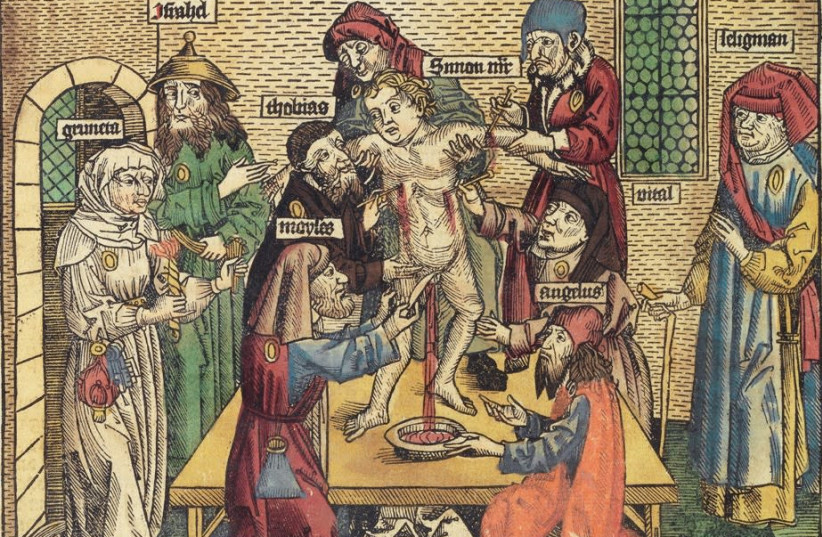“Israeli forces are happy to kill children,” a BBC anchor told Naftali Bennett in an interview where the former prime minister defended the Israeli operation in Jenin.
The interview was conducted by host Anjana Gadgil and was posted to Bennett’s YouTube channel on Wednesday.
“The Israeli military are calling this a ‘military operation,’ but we now know that young people are being killed, four of them under 18. Is that really what the military set out to do? To kill people between the ages of 16 and 18?”
“Quite to the contrary,” Bennett replied. “Actually, all 11 people dead there are militants. The fact that there are young terrorists who decide to hold arms is their responsibility.”
The former leader went on to explain that, of many of the terror attacks over the past year, events that have collectively ended several dozens of Israeli civilian lives, the perpetrators have come from, and were trained in, Jenin.
“Jenin has become an epicenter of terror,” he says. “All the Palestinians that were killed were terrorists in this case.”

This unsubstantiated claim not only distorts the reality on the ground but also amounts to dangerous incitement and a blood libel, fueling the already surging wave of antisemitism worldwide, organizations said.
The International Legal Forum, a global network of lawyers combating antisemitism and terror, expressed utter dismay and shock at Gadgil’s conduct. In an open letter addressed to the BBC director-general, Tim Davie; Prof. Dame Elan Closs Stephens, acting chair of the BBC Board; and Deborah Turness, CEO of BBC News and Current Affairs, ILF highlighted the false and misleading nature of Gadgil’s statement.
They stressed that Israeli forces strictly target terrorist elements, combatants, and military infrastructure in Jenin, a hotbed of terror in recent years.
The ILF emphasized that some Palestinian combatants, including individuals as young as 17, have been cynically recruited by terrorist groups, which is a grave violation of international law.
They urged the BBC to adhere to its mission of providing impartial news and information and called for an immediate and unequivocal public apology from the broadcaster. ILF also called for appropriate reprimands to be taken against Gadgil for her unacceptable conduct.
The BBC responded to EJA's letter with a statement in which they apologized for the way the questions were asked: “We have received comments and complaints concerning an interview with the former Israeli Prime Minister Naftali Bennett about recent events in the West Bank and Israel," the statement read.
“While this was a legitimate subject to examine in the interview, we apologize that the language used in this line of questioning was not phrased well and was inappropriate.”
BBC's history of anti-Israel bias, antisemitic blood libel and antisemitism
This incident comes in the wake of a cross-party investigation initiated by the British Parliament last December into bias in the BBC’s coverage of Israel. With concerns raised about systemic and institutional bias against Israel, instances such as Gadgil’s false assertion further underscore the need for urgent corrective action.
Rabbi Menachem Margolin, chairman of the European Jewish Association (EJA), also expressed his dismay in a letter addressed to the BBC director-general. He criticized Gadgil’s assertion as a blatant untruth, emotionally charged, and eerily reminiscent of the historical blood libel that has plagued Jewish communities for centuries.
Margolin emphasized that the Israeli armed forces take extraordinary measures to avoid civilian casualties, and such baseless accusations undermine journalistic probity and the BBC’s code of conduct.
Both the ILF and the EJA called on the BBC to retract the false statement and reprimand Gadgil promptly.
